For more information about physics teaching and pedagogy, please contact the physics teaching faculty coordinator.
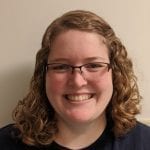
New Physics Faculty: Erin Scanlon
Erin Scanlon joins our Department in fall 2020 as Assistant Professor in Residence at the Avery Point Campus. Erin comes to UConn with an impressive track record of university teaching experience and scholarship in physics education research (PER). After earning a master’s degree in physics from Georgia Institute of Technology, Erin joined the faculty at […]
[Read More]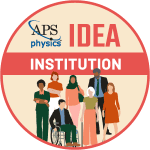
Physics Department Joins APS-IDEA Network
The Physics Department’s Diversity & Multiculturalism Committee (DMC) was accepted into the APS Inclusion, Diversity and Equity Alliance (APS-IDEA). Despite years of efforts on local and national levels, the diversity in many physics departments is not reflective of the diversity nationwide. Our department is no exception in this regard. The new APS initiative was created […]
[Read More]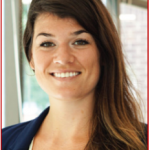
Insight from APS: Careers in Physics
What is a Bachelors of Science degree in Physics good for? What kinds of jobs are available to graduates who complete a 4-year degree in physics, but decide not to pursue an advanced degree? How does a physics degree stack up against other STEM fields in terms of employment options in today’s highly competitive job […]
[Read More]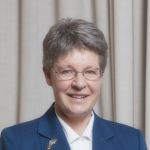
Professor Jocelyn Bell Burnell – 2019 Katzenstein Lecturer
The UConn Physics Department is delighted to announce that our 2019 Distinguished Katzenstein Lecturer will be Professor Dame Jocelyn Bell Burnell. Professor Dame Jocelyn Bell Burnell is world-famous for her discovery of pulsars in 1967. Pulsars are a special type of neutron star, the rotating dense remnant of a massive star. Pulsars have highly magnetic surfaces, and emit a beam of electromagnetic radiation […]
[Read More]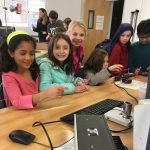
Goodwin School 3rd grade visits the Physics Learning Labs
About one mile from the Gant plaza, Goodwin Elementary School teaches some really bright kids. On January 15, 2019, science teacher Nancy Titchen and Goodwin teachers brought the entire 3rd grade class on a field trip to the Physics Learning Labs mock-up studio for some science fun. Students enjoyed a liquid nitrogen show, witnessed quantum […]
[Read More]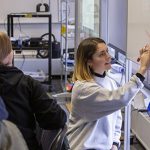
Hands-On Approach to Physics
Step into a fall 2018 class section of PHYS 1602: Fundamentals of Physics II, and you’ll find a scene that’s far from the large introductory science lectures common on most college campuses. Anna Regan ’21 (CLAS) utilizes a whiteboard to try out solutions during her group’s problem-solving tutorial. (Bri Diaz/UConn Photo) To start, the class […]
[Read More]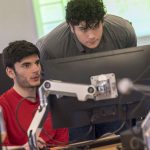
Hands-on teaching of introductory physics gains momentum
A recently renovated physics classroom in the Edward V. Gant Science Complex was built to pilot a new approach to physics education, integrating lecture with lab rather than the classical approach of separating these components. Students and instructors apply concepts with hands-on activities throughout the lecture, practice new tools, and problem solve as a […]
[Read More]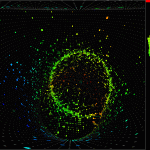
21st Annual Katzenstein Distinguished Lecture
Monday, March 26, 2018 The 21st Annual Katzenstein Distinguished Lecture was hosted by the UConn Physics Department, featuring Dr. Takaaki Kajita, 2015 Nobel Prize Winner from the University of Tokyo, speaking on “Oscillating Neutrinos.” After the lecture, a banquet with the speaker was held for members and guests of the department. We enjoyed welcoming alumni and […]
[Read More]
Special Lecture on Diversity and Inclusion
Solving the complex problems that we face in our world today requires a more talented workforce than we have ever needed before. Such a workforce must be comprised of a wide range of diverse talents and creative insights. No segment of the population can be ignored or overlooked in this talent search. This presentation will describe the most recent research that demonstrates the positive impact that social and informational diversity has on science and innovation, the reasons for this impact and the importance of committed leadership in achieving a strong and inclusive workplace where creativity and productivity is maximized.
[Read More]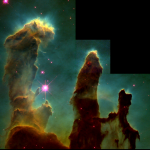
UConn offers new minor in Astronomy
The Physics Department has recently expanded its research and teaching specialties to include Astronomy with the addition of three new junior faculty: Cara Battersby, Jonathan Trump, and Kate Whitaker. In addition to the expertise in Observational Astronomy using the latest instruments and techniques, they are also spearheading a suite of new courses in Astronomy and […]
[Read More]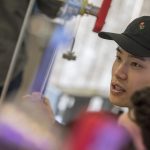
Professor tests innovative approach to teaching Introductory Physics
Following up on results from Physics education research conducted at MIT and elsewhere, professor Jason Hancock has begun the process of transforming the way Introductory Physics is taught at the University of Connecticut. Starting with the course PHYS 1601Q for physics majors, Prof. Hancock has developed a curriculum that integrates aspects of both lecture and lab […]
[Read More]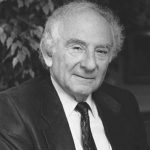
Katzenstein lecture brings Nobel Laureat, UConn alumni to Storrs
The Katzenstein Distinguished Lectures series continued in Fall 2016 for its 19th year, with an October 28, 2016 lecture by Professor Leon N. Cooper of Brown University, entitled “On the Interpretation of the Quantum Theory: Can Free Will And Locality Exist Together In The Quantum Theory?” Professor Cooper shared the 1972 Nobel Prize in Physics […]
[Read More]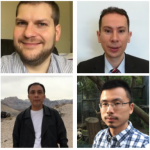
UConn Physics welcomes new teaching faculty
Assistant professors in residence (APiRs) are primarily responsible for teaching and managing large introductory service classes in cooperation with faculty. The Physics Department has recently promoted Diego Valente to APiR from his former position of Visiting Assistant Professor. Congratulations Diego on a well-deserved promotion. The department extends a warm welcome to three other APiRs, Belter Ordaz-Mendoza, Hani Duli, and […]
[Read More]